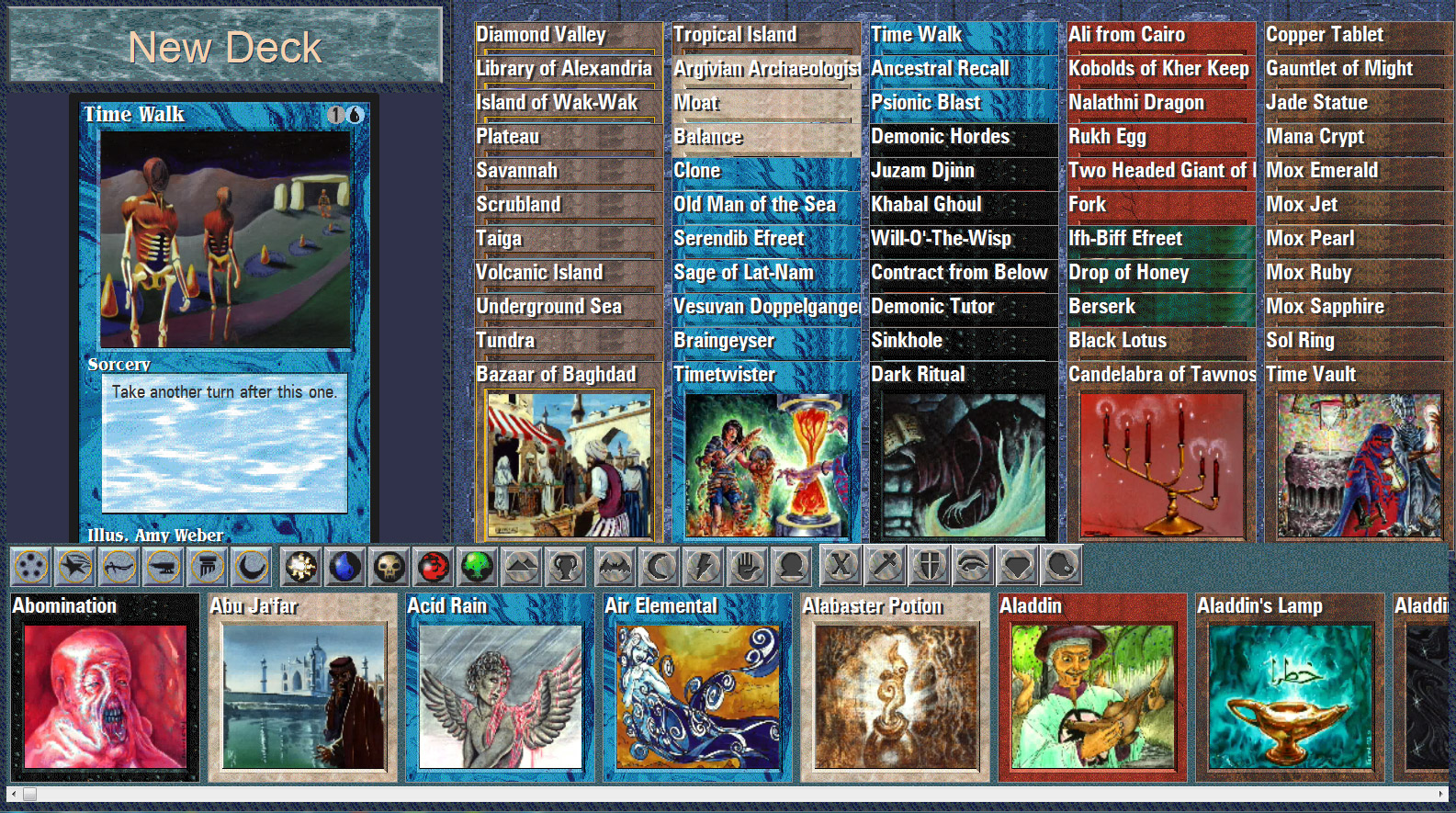

The game also introduces a new concept of gems, which are difficult to obtain, but can be used as currency to trade for powerful, permanent artifacts that enhance your wizard's power (for instance, magical boots that let him walk quicker than normal). You amass more powerful cards by winning duels with wandering monsters, or taking on quests in the various villages using the multiple-choice interface that is based on a simplified version of the Darklands engine. not very powerful) cards, mostly of the color of your choice. After creating your character, you start with a random deck, which includes very standard (i.e. As a novice spellcaster, your goal is to defeat the five powerful evil wizards who are wreaking havoc upon the land. Not content with giving players just a card game rendition, MicroProse wraps the entire card-game mechanics around an epic fantasy storyline, set in the world of Shandalar. This computer game version, in contrast to the horrendous BattleMage game from Acclaim which is based on the same license, truly brings all the fun and subtleties of the card game to life via an elegant point-and-click interface and excellent graphics that do justice to the cards' original intricate artwork.

There are many types of cards: enchantments (which typically last indefinitely), creatures, instants and sorceries (discarded after use), lands (tapped for mana), and artifacts. You will therefore find many regeneration cards and forest creatures in this discipline. Green, on the other hand, represents Earth. Therefore, there are many blue illusion spells, and 99% of all blue monsters you can summon are something that can swim.

Blue, for example, is water, which prefers illusions and guile. disciplines of magic, each with its own characteristics appropriate to that element. The rules are too intricate to go into detail here (follow the link below to a good beginner's introduction to Fifth Edition Rules) – suffice it to say that there are five colors, i.e. The game is turn-based, with each turn comprising several phases. One of the best computer translations of a non-computer game ever made, MicroProse's Magic: The Gathering not only deserves a Hall of Fame status for its faithful rendition of Wizard of the Coast's blockbuster trading card game of the same name, but also for the numerous innovations that are only possible as a computer game.įor the uninitiated, Magic: The Gathering pits two players, as powerful wizards, against each other in a magical duel, where each wizard can cast spells, summon monsters, and invoke various enchantments or curses.


 0 kommentar(er)
0 kommentar(er)
